RBLI and TfL partner for
VE Day 80
Royal British Legion Industries (RBLI) is proud to work with TfL to celebrate the 80th anniversary of VE Day.
Military veterans working at RBLI’s social enterprise have created special editions of their iconic Unknown Tommy and Unknown Woman in War figures for the anniversary.
These are displayed at five stations – Balham, Bethnal Green, Baker Street, Charing Cross, and Tower Hill – in memory of colleagues and customers who were tragically killed in by bombs during the Second World War.
You can purchase your own Unknown Tommy and Unknown Woman in War figures online at www.rbli.shop.
More information about the charity below.
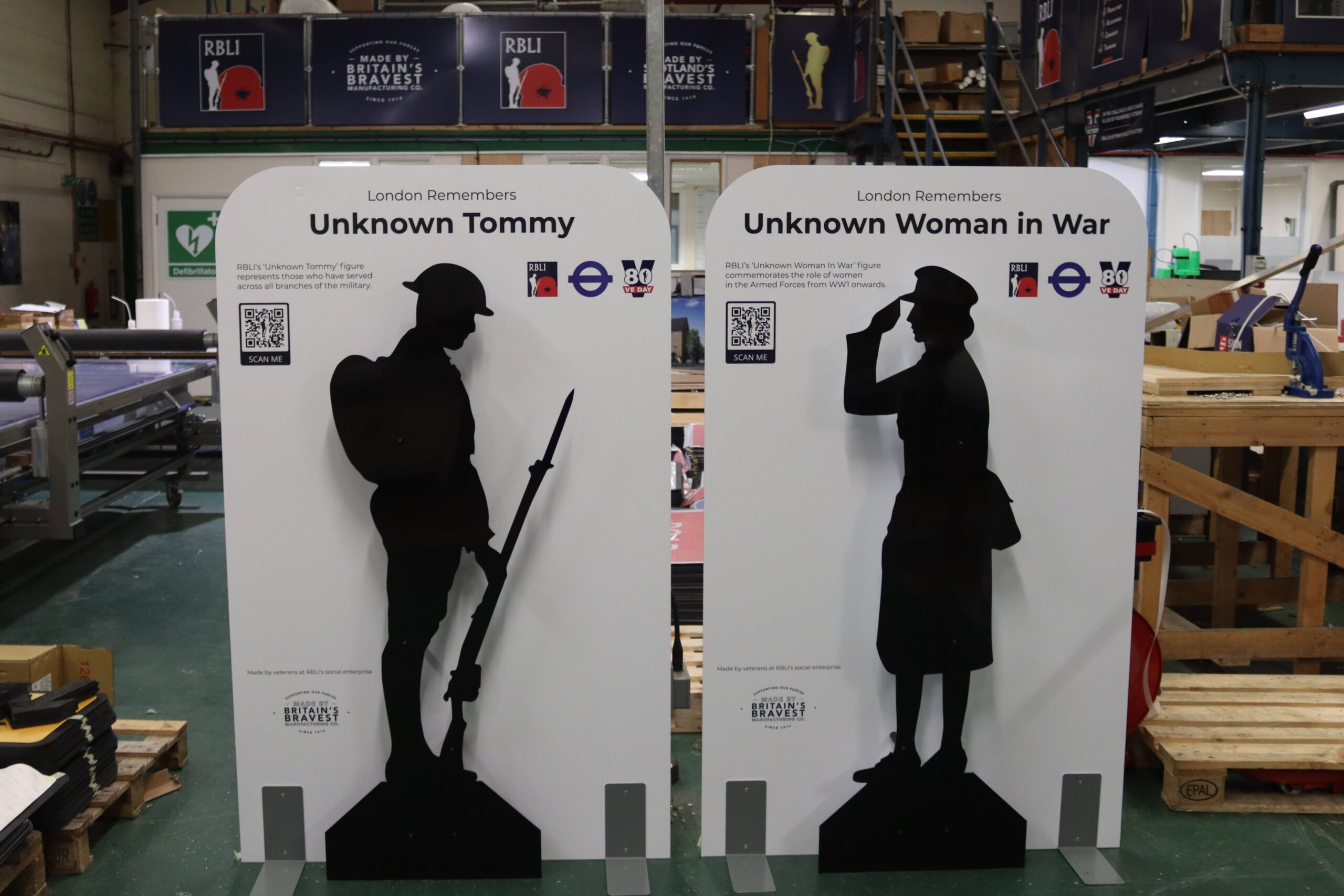
The history of RBLI and its Unknown Tommy and Unknown Woman In War figures
RBLI was founded in 1919 to help soldiers coming back from the trenches with health problems after World War One. The ‘Unknown Tommy’ is named after Tommy Atkins, the slang name given to common soldiers in the British Army.
Over a century on, RBLI has the same goal of helping veterans who are struggling. Funds raised from the products it sells enable veterans of all three services of the UK Armed Forces to access homes, jobs, and specialist support.
Alongside the Unknown Tommy, in 2021 RBLU introduced an Unknown Woman In War figure commemorating the role of women in the Armed Forces. The first person to receive an Unknown Woman In War figure was Charlotte ‘Betty’ Webb, who worked at Bletchley Park from the age of 18, helping to intercept and crack German coded messages.
Both figures are now available as part of RBLI’s collection of Tommy merchandise, made and fulfilled by veterans.
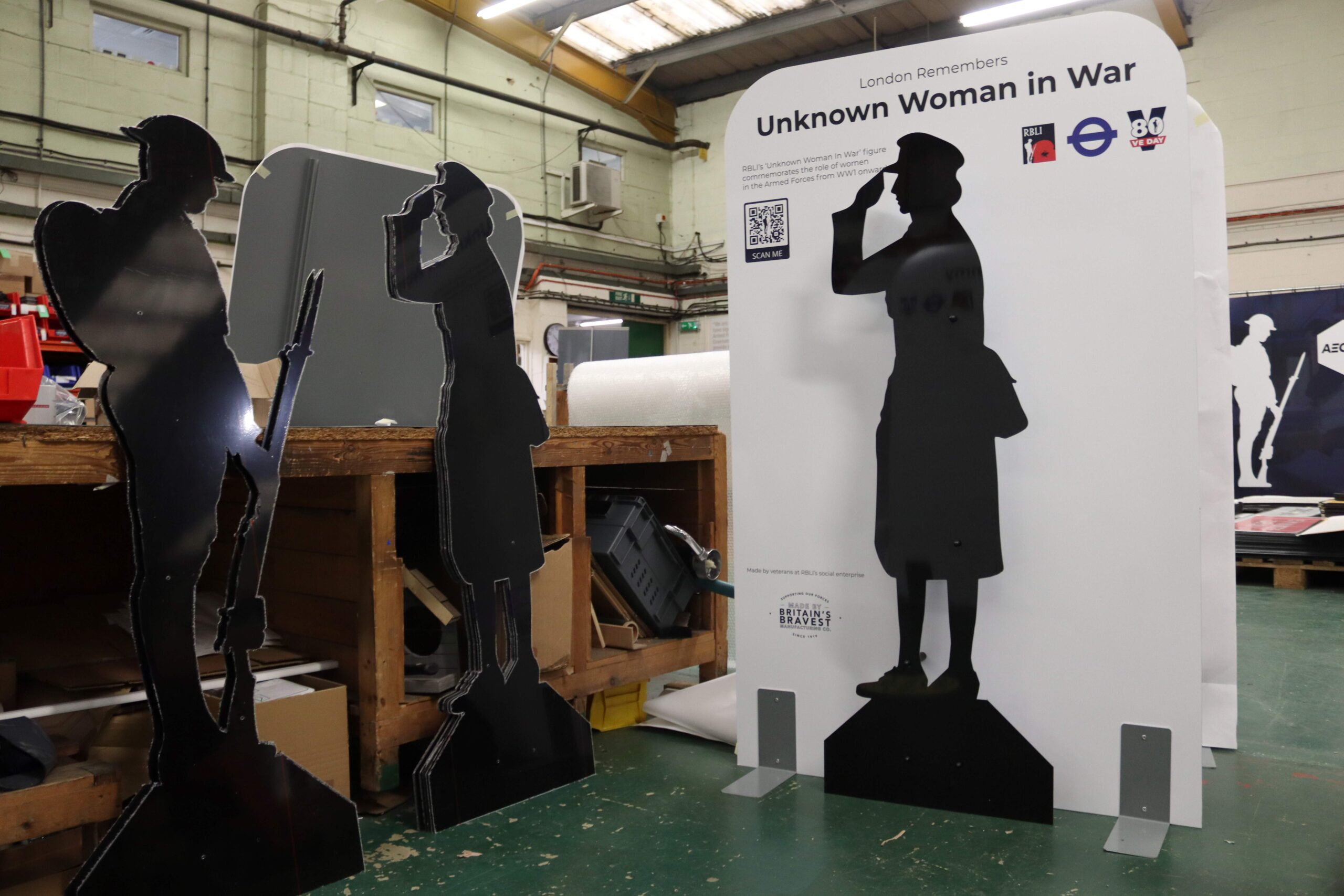
This Project
On 8 May, the UK marks the 80th anniversary of Victory in Europe and the beginning of the end of the Second World War. The support provided by staff and the transport network during the war was unwavering, with London suffering major air raids during the intensive bombing campaign (The Blitz) between September 1940 and May 1941, with deep-level Tube stations becoming makeshift shelters for thousands of Londoners.
TfL is working with RBLI to create silent memorials at a selection of stations which were most significantly impacted during the war resulting in tragic loss of civilian and London Transport lives:
Balham
On 14 October 1940, a 1400kg semi-armour piercing fragmentation bomb fell on the road above the northern end of the platform tunnels at Balham Station, creating a large crater into which a bus then crashed. The northbound platform tunnel partially collapsed and was filled with earth and water from the fractured water mains and sewers above, which also flowed through the cross-passages into the southbound platform tunnel. 67 civilians and London Transport staff were killed.
Bethnal Green
On 3 March 1943, the Bethnal Green air raid warning sounded at 8.17pm. People made their way in the pitch dark of the blackout to file in an orderly manner down the steps of Bethnal Green underground station. On this wet, slippery stairway a woman with a child fell on the 3rd step from the bottom and others tumbled over her. The crowd above continued pressing forward unable to see what was happening below. Within seconds the whole staircase of around 300 people trapped five or six deep. 173 dead were pulled out – 84 women, 62 children and 27 men. 62 were hospitalised and at least 30 more walked away wounded. Many more suffered life-long trauma. This was the worst civilian disaster of the Second World War.
Tower Hill
Tower Hill is home to two Memorials which are part of Commonwealth War Graves Commission memorials in Trinity Square Gardens. The Memorials, one for the First World War and one for the Second, commemorate civilian, merchant seafarers and fishermen who were killed as a result of enemy action and have no known grave.
Baker Street
Baker Street tube station has an imposing marble memorial, surmounted by a lion slaying a serpent, commemorating the names of the men of the Metropolitan Railway Company who lost their lives in World War One. Beside it stands a 12inch shell case, presented by Vickers Ltd, which can be seen on the eastbound Circle Line platform.
Charing Cross
Charing Cross tube station served as a crucial shelter for Londoners during air raids thanks to its central location. The station was bombed in 1940 and seven people who were sheltering in the station tragically died.
London’s Transport Commissioner, Andy Lord, along with a member of the London Transport Old Comrades Association and TfL veterans, will lay a wreath at Charing Cross Underground station on Thursday 8 May to honour the lives lost across the transport network during World War Two.
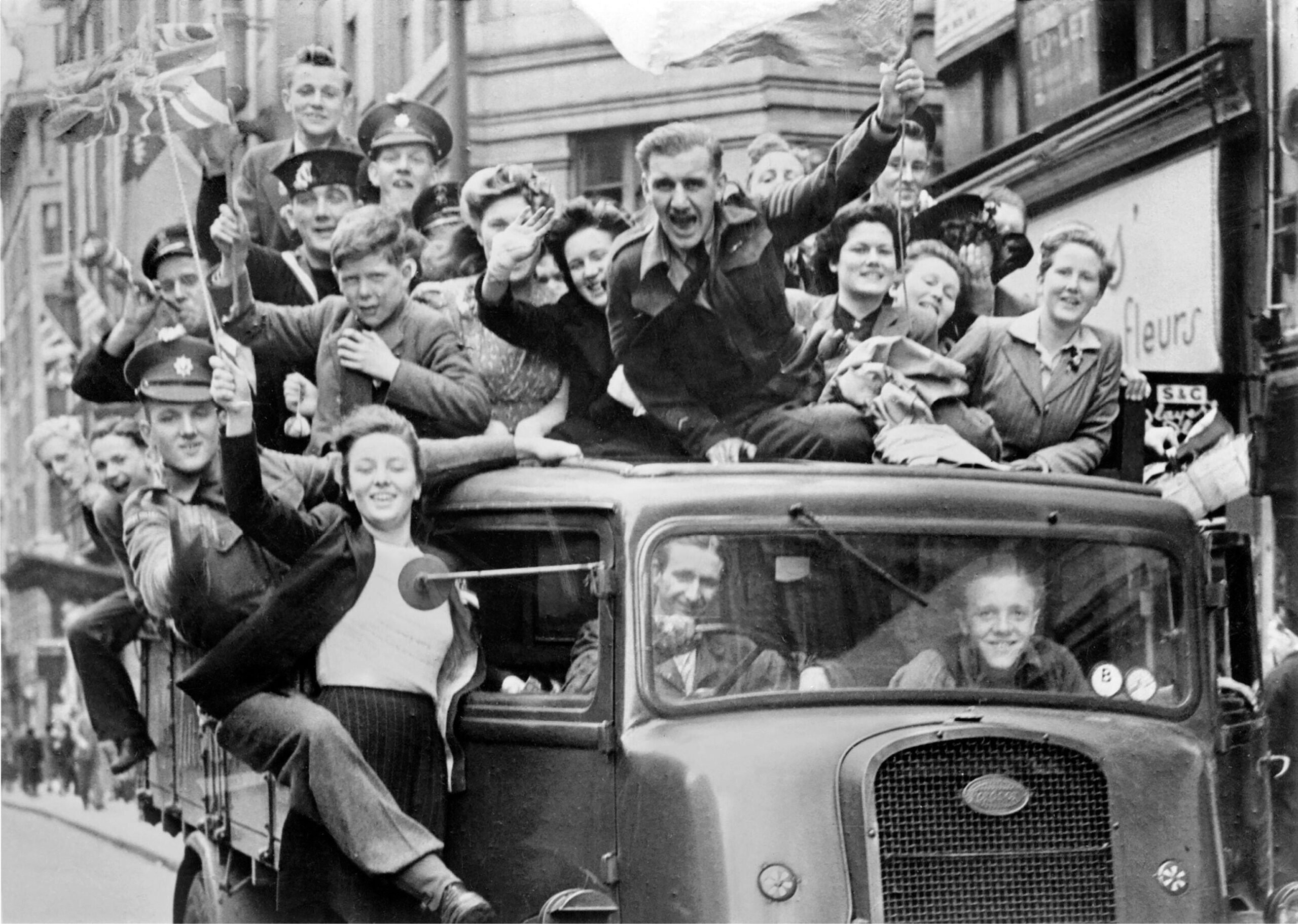
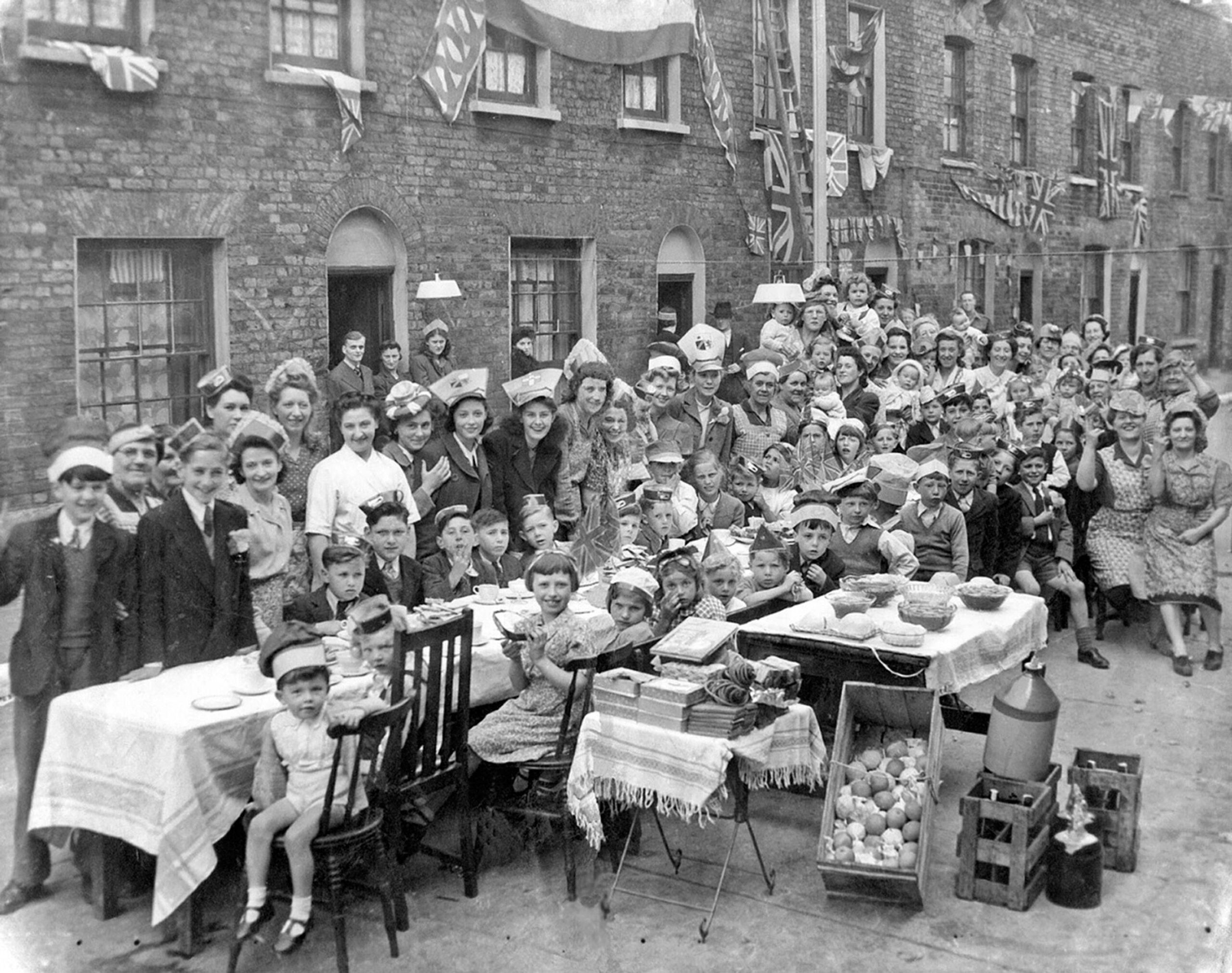
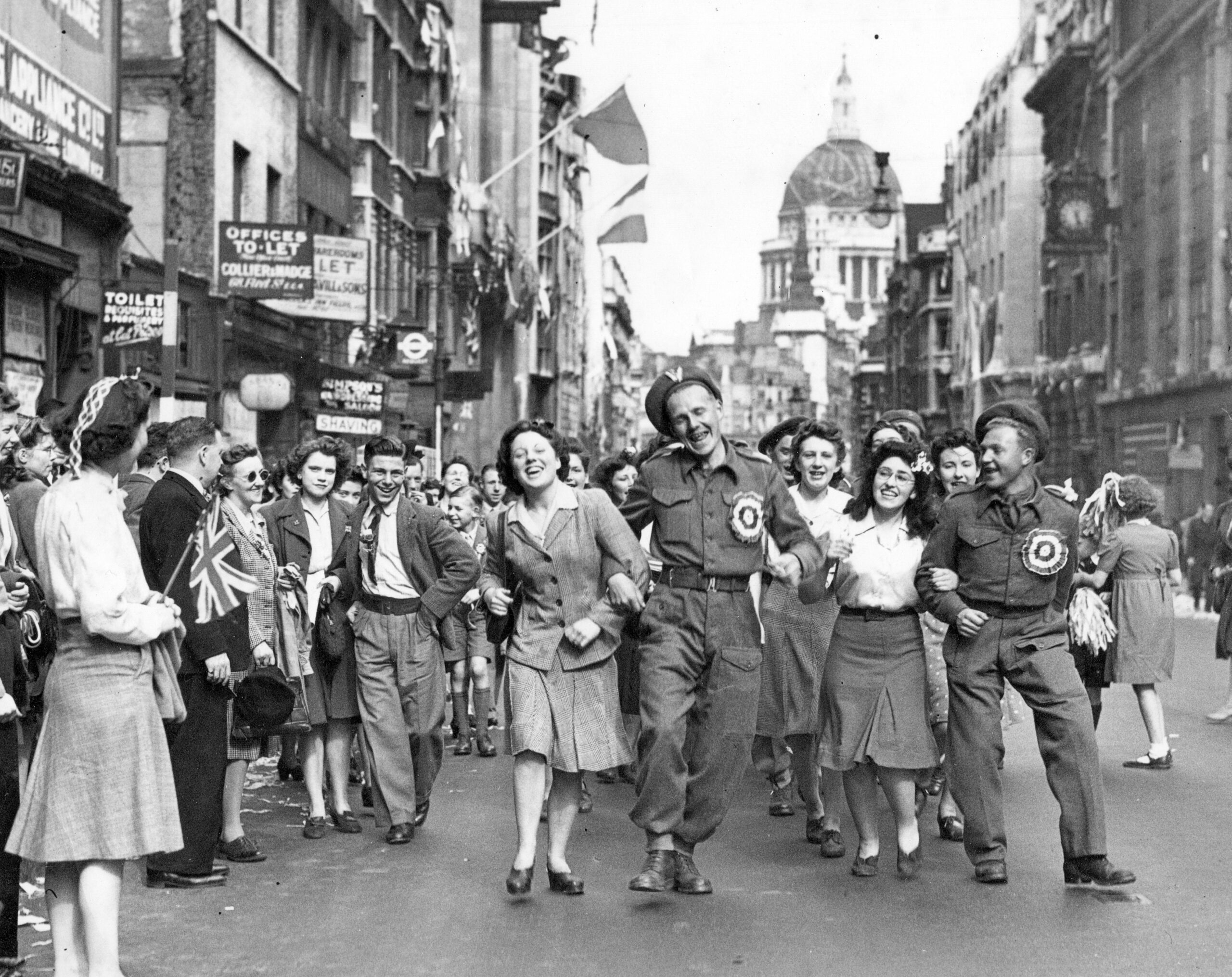
TfL support for veterans
TfL has been a long supporter of the Armed Forces, dating back to the First World War where members of the Omnibus Company drove injured soldiers back from the Western Front. In 1920, King George V invited veterans who returned from war to Buckingham Palace for formal inspection and later proclaimed that those who supported the extraction of wounded soldiers would be granted the privilege of joining the Remembrance parade past the Cenotaph along Whitehall which has continued to this day. Staff went on to form the London Transport Old Comrades Association which marked its Centenary in 2023.



